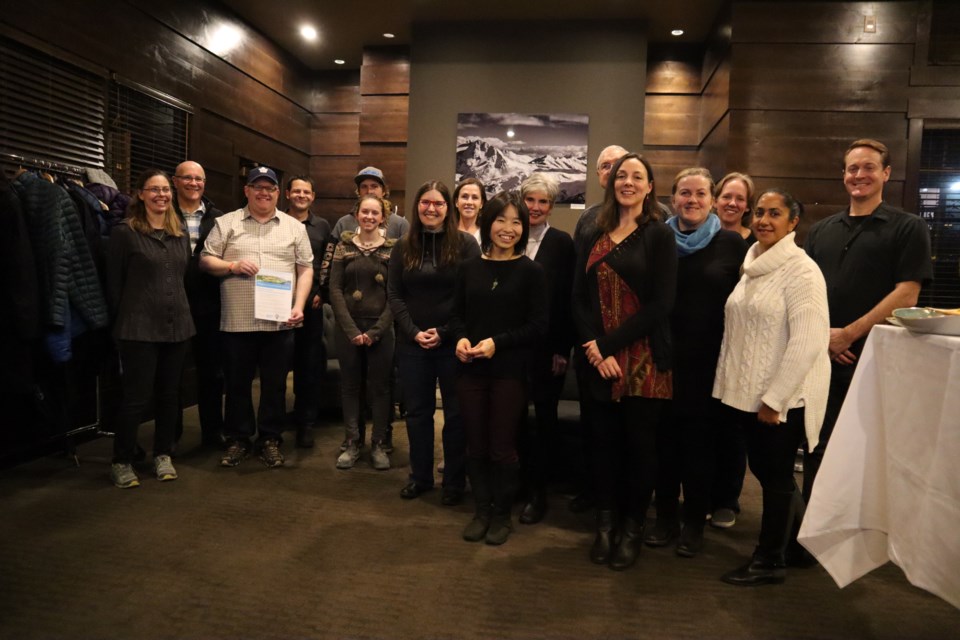Last week, the Whistler Centre for Sustainability hosted a get-together for participants of Resilient Streets, a program that uses micro grants to build stronger communities.
Around 20 people attended the Nov. 13 event, which was held in the library of the Nita Lake Lodge. Participants traded stories about their experience and reflected on the neighbourly vibes the program helped forge.
Doug Ryan of Cheakamus Crossing talked about a neighbourhood party he helped organize.
After posting about the grant opportunity on a community Facebook page, he met Peter and Patricia Dagg, who went on to help organize the event.
"That's the beauty of this," said Ryan, speaking to the crowd. "You meet neighbours that you've never met before, and you create that kind of bond that we're talking about."
Eventually the three formed a committee. Building on the planning grant, the committee reached out to neighbourhood strata councils and local businesses for donations. Creekside Market donated hot dogs, and the money from the stratas helped subsidize a taco truck and hire local performers, such as kids' entertainer Ira Pettle.
In the end, the weather didn't exactly cooperate (it poured), but party-goers were able to take shelter underneath a blow-up igloo lent by Cinnamon Bear Bar and Grille manager Tim Koshul.
"It all came together," said Ryan. "I want to keep (organizing neighbourhood parties), whether there is a grant or not."
Dan Wilson of the Whistler Centre for Sustainability (WCS), said that a total of $7,500 worth of grants were given out this year, including $50 planning grants to 21 people and $200 grants to 26 others.
The community-building projects took many forms, including a number of neighbourhood libraries and a movie night, and several of the projects were used to organize events in coordination with the Resort Municipality of Whistler's FireSmart chipper program.
Wilson said he was impressed with how the community ran with the grants, often doing additional fundraising.
Wilson also showed the results of a survey conducted by some participants.
While still preliminary—around a dozen people had responded—the results were positive, he explained.
A majority of respondents said that neighbours are more likely to connect again on their own, ask to borrow things from each other, and organize a similar activity.
A highlight of the evening came when Carol Coffey, executive director for the Community Foundation of Whistler (CFOW), announced that long-term funding for the program has been secured.
The funding for this year's Resilient Streets program came from provincial grant aimed at creating healthy communities as well as funding from the CFOW.
For at least the next three years, the CFOW will work with the Vancouver Foundation—which has been running a small grant program for almost 20 years—to finance the program.
"They have had a lot of success with it, and are really keen to share it around the province," said Coffey, adding that the plan is to increase the grants to $500 each. The foundation is hoping to give out six or seven grants to begin with.
"It seems like such a simple thing," she said of the grant-giving premise. "But it is foundational for a strong and resilient community ... It's community building at the most important level."




